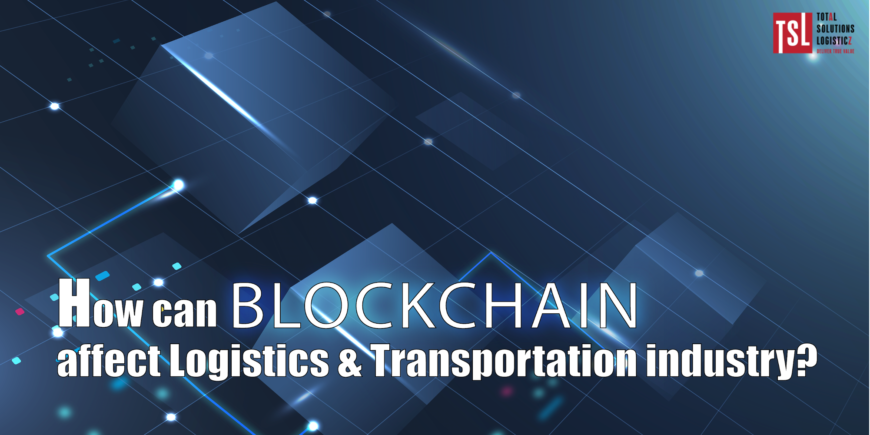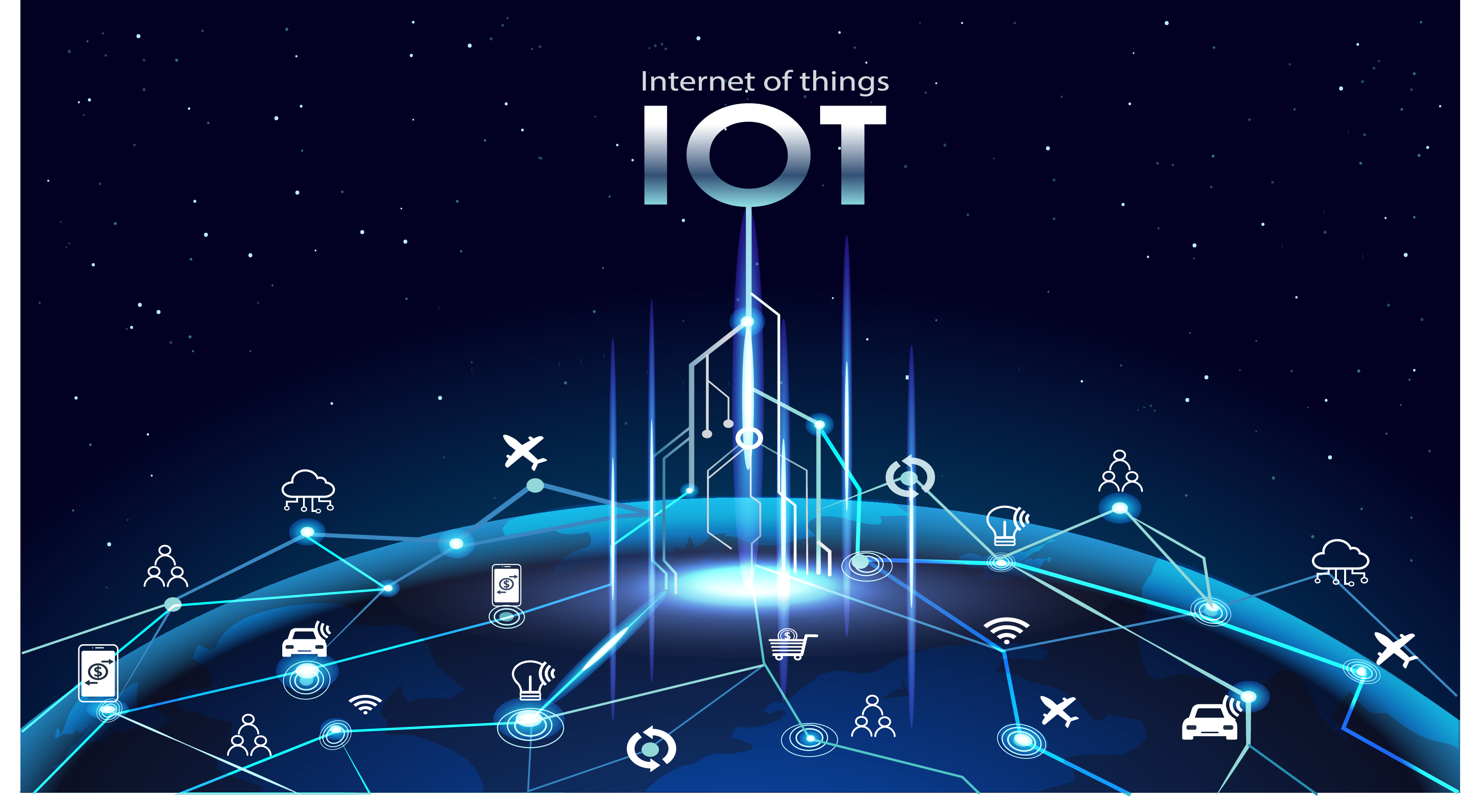How can Blockchain affect Logistics and Transportation industry?
Transportation is a massive segment of the global economy, as much as 12% of cash flows, and there are so many parties involved: shippers, carriers, customs and the companies that provide fuel for trucks, planes, trains, etc. There are so many transactions associated with any shipment. Now think about having to wait 60 to 90 days for payment across each and every segment from each and every participant involved. What if, instead, we use Blockchain and smart contracts to speed up payments? That introduces trust and automation, speeding verification and eliminating an enormous drag…
What is a Blockchain?
A blockchain is a distributed database that is shared among the nodes of a computer network. As a database, a blockchain stores information electronically in digital format. A database usually structures its data into tables, whereas a blockchain, like its name implies, structures its data into chunks (blocks) that are strung together. This data structure inherently makes an irreversible time line of data when implemented in a decentralized nature. When a block is filled, it is set in stone and becomes a part of this time line. Each block in the chain is given an exact time stamp when it is added to the chain.
One key difference between a typical database and a blockchain is how the data is structured. A blockchain collects information together in groups, known as blocks, that hold sets of information. As new data comes in, it is entered into a fresh block. Once the block is filled with data, it is chained onto the previous block, which makes the data chained together in chronological order.
Blockchains are best known for their crucial role in cryptocurrency systems, such as Bitcoin, for maintaining a secure and decentralized record of transactions. The innovation with a blockchain is that it guarantees the fidelity and security of a record of data and generates trust without the need for a trusted third party. In the field of Logistics, the application of Blockchain is also a great concern of major technology and logistics corporations in the world.
What’s the role of blockchain in Logistics and the Transportation industry?
Blockchain is a technology that’s ideally suited to the transportation industry and one we believe – insist really – will prove transformational in its impact. Fundamentally, it’s a technology that allows people/companies who often don’t really know or trust one another naturally to engage in commerce.
Think about any shipment: From point A to point B, you have multiple parties touching the freight and needing to see what they need to see. And yet there are thousands of shippers and carriers – land, sea, rail and air – as well as freight brokers/forwarders, 3PLs, insurance providers, customs agents and customers of all kinds. So there are many participants who often know little about one another, and yet they have business to conduct, ranging from small, low-value shipments to larger, or very large and very high value shipments. But there’s no standardization. There is no means of sharing data in a trusted manner across this network of participants.
Another important example is around payment. With Blockchain, you can embed smart contracts. These are essentially routines that automate payments based on what’s happening with the shipment. So the parties agree to the contract and embed the terms within blockchain and when the conditions are met, for example, a carrier drops a shipment at a given warehouse, both parties have evidence (of specific performance) and the smart contract initiates the payment automatically.
What Blockchain introduces, fundamentally, is greater trust across the ecosystem. With Blockchain, participants have everything they need to know about their shipments and transactions in one place, and they know the information is reliable because of the security of the distributed ledgers. In terms of the challenges and the needs of logistics and transportation industry, blockchain can become a transformative tool, bringing a lot of new breakthroughs through the following benefits:
1. Blockchain for easy data authentication
In the future, with the help of Blockchain, the entire network of data providers will be organized more clearly. Blockchain-based data helps to improve data transparency, making product traceability easier instead of relying too much on EDI or APIS. The authenticity and legitimacy of the product cannot be changed in the Blockchain system without the permission of the relevant parties such as manufacturers, distributors, and sellers to verify the supply flow.
2. Blockchain combines with AI and IoT to monitor shipping capacity
Combined with IoT and AI, Blockchain will increase efficiency dramatically, and become useful in monitoring shipping capacity. Specifically, IoT sensors mounted in means of transport help transport units determine the occupied space of shipments, thereby determining the appropriate means of transport and the appropriate price. Blockchain technology helps maintain the integrity of valuable products in transit, while securely recording all data during the entire transit. This information data is instantly transmitted to the Blockchain system to help stakeholders safely and accurately monitor and monitor transport capacity.
3. Blockchain keeps track of the vehicle’s operation history
Not only helps to determine the cargo capacity of each means of transport, Blockchain is also applied to monitor the operation history of each vehicle. Based on the parameters and information stored on the Blockchain system, Blockchain technology can track and authenticate information about the performance and maintenance history of the vehicle. This helps businesses, especially shipping and logistics businesses, determine the standard level of vehicles to choose for transporting goods.
4. Blockchain and IoT combine with V2V to operate vehicle-to-vehicle communication
Currently, there are many companies in the industry implementing V2V (Vehicle to Vehicle Communications) tools that help multiple vehicles communicate with each other like a team. Therefore, when Blockchain and IoT combine with V2V, supporting data storage and communication links between vehicles, it will help streamline transportation operations on a global scale. For example, arrange the data of these conversations in a reasonable way, making them secure and transparent so that the transportation becomes safer.
5. Blockchain Smart Contract helps to reduce costs, eliminate errors and intermediary procedures
The situation of intermediaries in the transportation of goods, as well as administrative procedures such as tariffs and contract terms, is not new in the logistics industry. According to statistics, sellers in the logistics industry usually have to wait an average of 42 days to receive payment. Therefore, Blockchain when applied in the Logistics industry will bring many typical benefits such as automating transactions when smart contracts are encrypted via Blockchain. Blockchain helps buyers and sellers verify shipments via blockchain and makes it possible for buyers to transfer payments automatically to sellers without the need for third-party intervention. This also helps to reduce the intervention of intermediaries in the transaction execution process, and at the same time, cuts costs and shortens transaction completion time. Blockchain application, the liquidity becomes smoother, faster when it takes only 1-2 days.
Besides the strong development of science – technology, Artificial Intelligence (AI), blockchain technology is also making significant strides and shows no sign of stopping. In fact, according to Deloitte’s 2021 Global Blockchain Development Survey, nearly 76% of executives surveyed said they expect digital assets to be a solid alternative to global asset exchanges in the next 5-10 years. With potential benefits in managing and monitoring operational information clearly, supporting optimal operations, Blockchain is a technology that promotes digital transformation, helping to reshape the logistics industry in the 4.0 era…
*Source: Forbes.com












